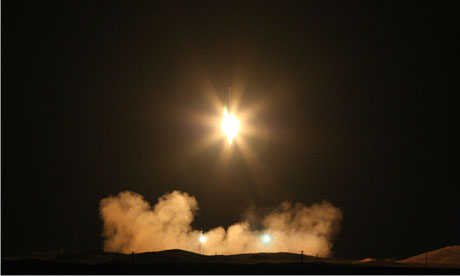To my mind, there are several interdependent reasons why the Iranian state remains relatively stable, at least in the short to middle term:• There is no all-encompassing rule by a single party that suffocates political dissent in total• There is no absolute absence of popular accountability• There is no military and intelligence sector that is not ideologically committed to the state/system• There is a committed base supporting that state and there is no real penchant within the country for revolution, even by the repressed opposition.More importantly, there is no over-dependency on the west that would yield a legitimacy crisis (as in Hosni Mubarak's Egypt and Zine al-Abidine Ben-Ali's Tunisia and under the shah) and there is no subservience to Israeli demands. The Iranian government's strident emphasis on "national independence" continues to garner support within Iranian society. Hence, the confrontation over the nuclear file is repeatedly stoked up in order to fan the flames of Iranian nationalism.These are conclusions that are largely subdued in many analyses about Iran. Instead, there exists an entire literature of instant expertise that is tied to the politics of the moment. If the analysis of a country is wrong the policy prescriptions are bound to be wrong too. Afghanistan and Iraq are very good examples of that relationship between the absence of sound knowledge on a country and strategic failure.
[IM ACTUALLY SURPRISED AN ORIENTALIST UNIVERSITY PROFESSOR IN LONDON ADMITS THIS...THE HIGHLIGHTED PART IS OF COURSE AN INFERRAL ALLUDING TO THE GREEN MOVEMENT WICH THE PROFESSOR CHAMPIONS,IN ANY CASE,WHATS LEFT OUT OF COURSE IS THEIR TIES TO VIOLENCE,THEIR PRO WESTERN IMPERIALIST REAPPROCHMENT IDEOLOGY,AND CLOSE TIES TO WESTERN INTELLIGENCE AGENCIES...




No comments:
Post a Comment